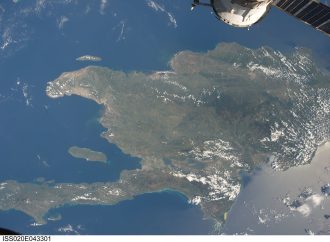Published in The Globe and Mail, March 19, 2014 There are many aspects to the current struggle over the future of Crimea which pose serious difficulties for an international community that would like to respond firmly. On the one hand, Vladimir Putin’s charade over troops without insignia notwithstanding, this is an act of naked aggression
Published in The Globe and Mail, March 19, 2014
There are many aspects to the current struggle over the future of Crimea which pose serious difficulties for an international community that would like to respond firmly. On the one hand, Vladimir Putin’s charade over troops without insignia notwithstanding, this is an act of naked aggression against a sovereign state. On the other, the realistic options for forceful responses in the short term look pretty limited.
But there are signs that some European leaders, who must rise to the fore if there is to be a significant non-military response, may be serious about imposing further sanctions. The initial round of sanctions against individuals could be a prelude. Serious sanctions could hurt Russia’s surprisingly vulnerable economy, if really pushed hard.
If Mr. Putin doesn’t take one of the diplomatic off-ramps being laid for him as a way out of this crisis, he may be in for a surprise at just how harsh the response could be.
Notably, German Chancellor Angela Merkel has made some tough statements about pain to come, even though it might also hurt German businesses. Ms. Merkel, who grew up in the former East Germany and speaks fluent Russian, has spoken sharply to Mr. Putin about the crisis, and, presumably, harbours few illusions about what it is like to live in a vassal state occupied by Russian troops.
If the previous history of talking big but often backing down is any guide, it is easy to say that Europe’s leaders will lack the determination to see it through. Perhaps that will happen this time as well. However, there is an element to this crisis which makes it just possible that Europe’s leaders will be prepared to accept pain in order to inflict some of it on Mr. Putin and his Russian political allies.
It’s about the question of European borders.
One of the central elements of the post-1945 European security system that all players have accepted is that borders are sacrosanct; even ones that make little sense in ethnic or historical terms. Having endured centuries of wars, culminating in the carnage of the First and Second World Wars, a tacit agreement took hold post-1945 that borders have to be left alone, even if there are ethnic minorities in another country.
Canada’s Sharpest International Affairs Commentary
Don’t miss future posts on the CIPS Blog. Subscribe to our email newsletter.
This didn’t happen right away, of course, but by the 1970s the idea was enshrined in various European security and co-operation documents that the post-1945 borders of the continent had to be respected, even the ones that made no sense. If ever changes were to be made, they had to be made through diplomacy only. The alternative was a return to the kind of Europe we saw pre-1945 – and no one wanted that.
It was the Russians themselves who were amongst the most keen to enshrine this principle in European security affairs. Former Soviet leader Leonid Brezhnev regarded it as one of his great accomplishments that the West had accepted the post-1945 borders. He was, in return, willing to sign on to various human rights provisions. (He had no intention of fulfilling these, of course, but they ultimately helped foster a network of dissidents across the former Eastern Bloc which were instrumental in bringing it down. But that’s another story.)
In his move into Crimea, Mr. Putin has thus directly challenged a fundamental principle which is at the very heart of the European system; you don’t carve up states to satisfy the desire to reunite ethnic groups or re-establish empires. There are lots of ethnic minorities which are on one side or the other of a border that was arbitrarily decided by where various armies had got to in the spring of 1945. Are we to go back to a European system whereby states engage in military adventurism to rectify these anomalies in their favour?
See also:
- David Petrasek, Russia’s Crimea Caper: One More Nail in the Non-Intervention Coffin
- Paul Robinson, Reaping the Whirlwind in Ukraine
It may take a while for Europe’s leaders, and their North American allies to respond, as it did when Slobodan Milosevic did the same in the Balkans (and the response certainly won’t be military, as Russia is a different order of adversary than Serbia was), but to accept what Mr. Putin is doing with nothing more than a shrug opens the door to a return to a kind of European order that is simply not tenable.
Perhaps Mr. Putin will get away with it. At the least, if he accepts diplomacy and compromise, he is likely to get guarantees that Ukraine won’t join NATO, and some sort of ongoing say in the governance of a permanently neutral country – which may have been his biggest objectives all along.
But, if Mr. Putin doesn’t take one of the diplomatic off-ramps being laid for him as a way out of this crisis, he may be in for a surprise at just how harsh the response could be; a newly reinvigorated NATO, and ongoing sanctions. Neither would be in Russia’s longer-term interests.
Mr. Putin cannot be forced out of Crimea if he decides to stay. But the cost of this adventure can be made to hurt as a signal that it is a way of doing business that is not pain-free.









